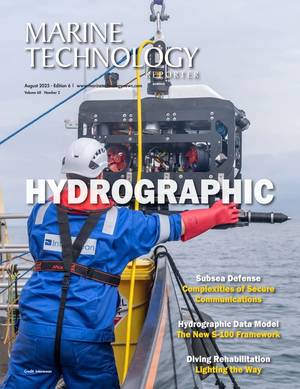Canadian and UK researchers to collaborate in developing innovative sensor technologies for tidal, valued at approximately $1.4 million
Canadian and British researchers will join forces to collaborate on two projects in developing new sensing technologies for tidal energy applications. The two projects, with a combined value of $1.43 million, were selected for funding through a joint research competition managed and funded by the Offshore Energy Research Association, a Nova Scotia Based not-for-profit research group, and Innovate UK, a government funded business and innovation accelerator out of the UK.
The two project teams each feature industry and academic expertise from Canada and the UK. Each will introduce new environmental monitoring and measurement sensor systems with a goal to reduce risk and uncertainties associated with the deployment and operation of in-stream tidal devices. Sensor deployment and testing will be carried out in both Canadian and UK waters. Additional expected outcomes are to build Nova Scotia technical capacity in tidal energy and to contribute to the sector’s emerging global supply chain.
The first project is led by Nova Scotia-based Emera Inc. in partnership with OpenHydro Canada, Ocean Sonics, and Acadia University, along with United Kingdom-based Tritech, Sea Mammal Research Unit’s United Kingdom and Sea Mammal Research Unit Consulting Canada. The project will deliver an innovative system using both passive and active acoustic sensor technologies. A data interface will be created allowing data from each sensor to be integrated into a fish and marine mammal data set. The system will improve the ‘real-time’ detection and tracking of fish and marine mammals at tidal sites in the Bay of Fundy. Specifically, testing will be done at the Cape Sharp Tidal berth at the Fundy Ocean Research Center for Energy (FORCE) site.
“Environmental stewardship and research are an important component of building a vibrant tidal sector in Nova Scotia,” said Chris Huskilson, President and CEO of Emera Inc. “We look forward to collaborating with our partners to gain a deeper understanding of the marine environment in the Bay of Fundy, and help set the table for safe and responsible tidal power generation.”
The second project is led by British Columbia-based Rockland Scientific, in partnership with Dalhousie University and Black Rock Tidal, along with United Kingdom-based FloWave TT, European Marine Energy Centre, and Ocean Array Systems. Rockland Scientific and its partners will develop a new sensor system to measure the impact of turbulence on tidal devices. Project results will be used to improve turbine designs and operation performance, as well as assessment of installation sites. The project was recently given the prestigious EUREKA label designation, and will be the first of its kind to be carried out in Nova Scotia.
The developed turbulence sensor systems will be tested and installed at three locations. First at the FloWaveTT Energy Research Facility in Edinburgh to test and validate the laboratory configuration. Deployments will then be carried out at the European Marine Energy Centre in Orkney, Scotland and at the FORCE site in the Bay of Fundy. The data sets from all measurement locations will be compared against each other and theoretically analyzed for turbulence flow structure.
“The accurate measurement and understanding of turbulence, and particularly its impact on structures and performance, is a vital part of designing and deploying any wave or tidal technology”, says FloWave Chief Executive Officer Stuart Brown. “To date, the techniques for measuring turbulence in the laboratory have been very different to those adopted at sea, making like-for-like comparisons from one environment to the other more difficult. This project will advance cababilities to improve such comparisons between environments.
Rockland Scientific President Fabian Wolk will be managing the project. He commented: “On behalf of the project partners I would like to thank OERA and Innovate UK for the funding award. Without the vision and stewardship provided by these organizations this trans-Atlantic project would be impossible to implement.”
These two projects are evidence of the importance of collaboration in the development of technologies necessary for the emergence of the tidal energy industry. The OERA and Innovate UK agree that in order for the tidal energy sector to reach its full potential in our respective countries and globally, we must share in our efforts to reduce cost, risk and uncertainty. International collaborative research can make a critical contribution to this objective.
“Innovate UK is pleased to be working alongside Offshore Energy Research Association on this effort, as it sees Nova Scotia as a growing and large potential market for tidal energy, making this a good opportunity for United Kingdom companies to gain exposure to that market,” said Rob Saunders, head of energy, Innovate UK. “We believe that faster progress will be made by combining the expertise, knowledge and experience to tackle common problems.”
OERA’s investment of $500,000 represents Nova Scotia’s contribution to these projects. Innovate UK is contributing $331,000 with remaining funds being provided by Canadian government agencies and industry partners’ in-kind leverage in both Canada and the UK.

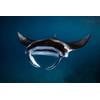

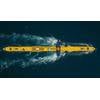

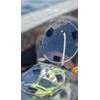






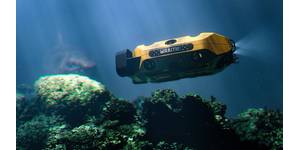
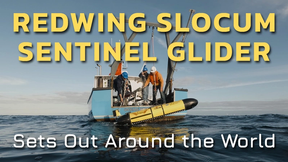
 August 2025
August 2025
